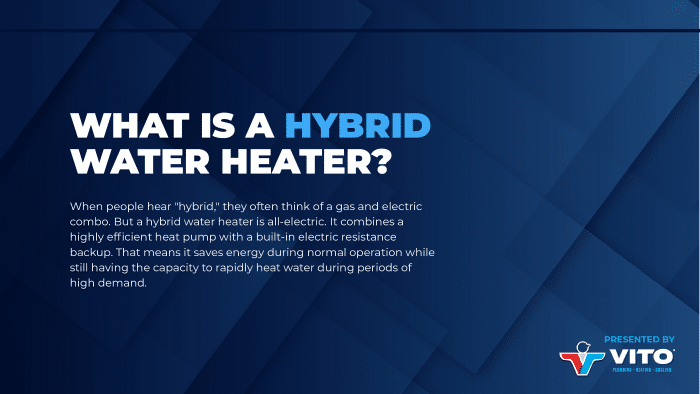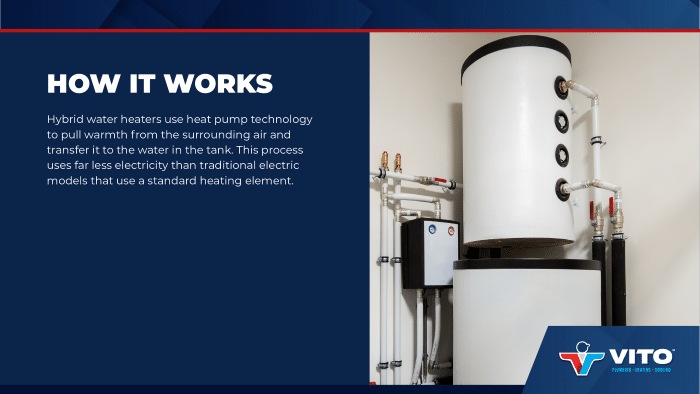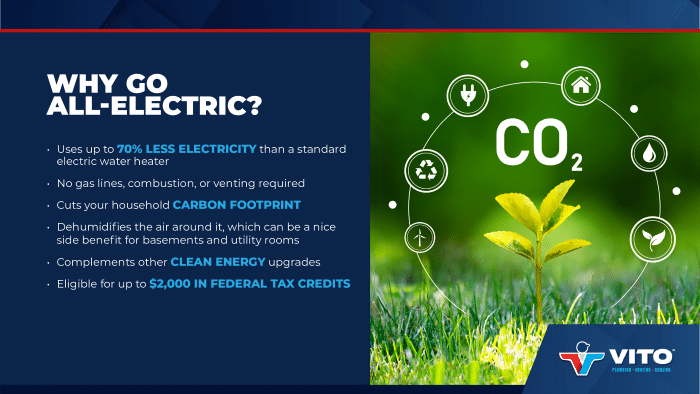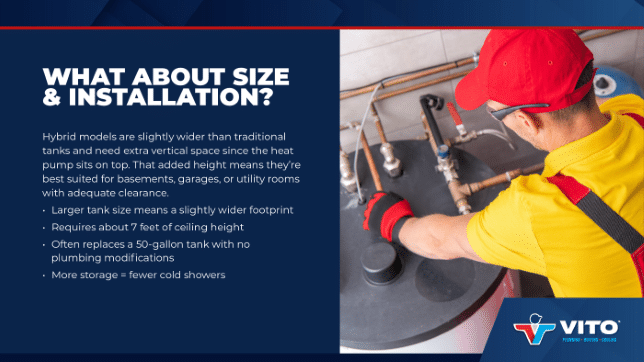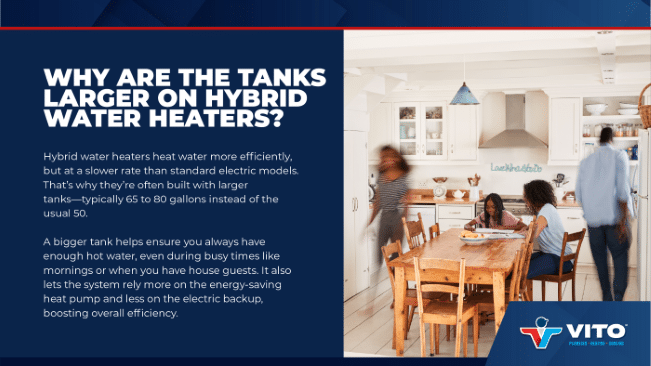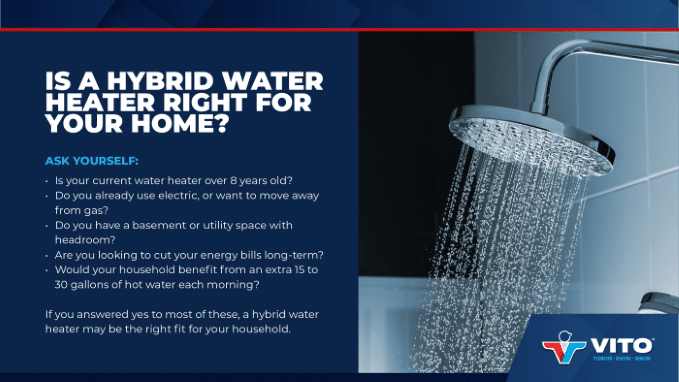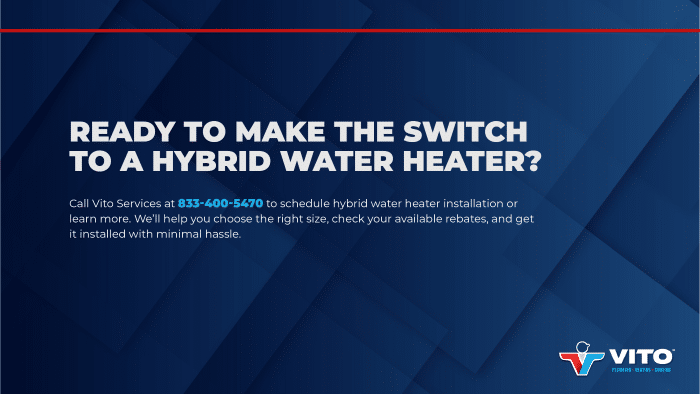
What Is a Hybrid Water Heater and How Does It Work?
Despite what you may assume when you see the word “hybrid,” these water heaters aren’t connected to gas at all. They are only powered by electricity. They are called hybrid because they have the ability to heat water in two ways: an attached heat pump and traditional electric resistance heating elements.
The heat pump portion functions similarly to HVAC heat pump technology, except the heat is transferred to water instead of the air in your home. As with heat pump HVAC technology, heat pump water heating technology is significantly more efficient than electric resistance heating.
How a Hybrid Water Heater Works
Instead of relying solely on an electricity-gobbling heating element to heat water, a hybrid water heater uses a heat pump to transfer warmth from the surrounding air to the water in the water heater. This process uses significantly less energy than standard electric water heaters. When demand is high or the air is too cool to efficiently extract heat, the unit automatically switches to its- electric heating element.
Cutting Costs Without Sacrificing Comfort
Many homeowners worry that high-efficiency appliances provide slower performance or less hot water. That’s not the case with hybrid water heaters. To account for the slower heating speed of the heat pump, most models come with larger tanks—typically 65 to 80 gallons—giving you more stored hot water. And if demand spikes, the electric backup ensures you’re not left waiting.
The ingenious combination of these two electric heating methods means you save money on energy bills without ever needing to sacrifice hot showers or wash cycles.
How Does It Compare to Tankless Water Heaters?
Tankless water heaters are another popular energy-efficient option, but they’re not always the better choice. Tankless models heat water on demand, which can be convenient, but they usually:
- Require significant electrical upgrades or gas line modifications
- Struggle to serve multiple fixtures simultaneously
- Cost more upfront for installation
Hybrid water heaters strike a middle ground: better energy efficiency than traditional tanks, fewer installation complications than tankless systems, and a built-in supply of hot water that doesn’t run out during peak usage.
Common Questions Homeowners Have About Hybrid Water Heaters
Hybrid units are a bit bulkier than standard electric water heaters, especially in height. Since the heat pump sits on top of the tank, you’ll need roughly seven feet of overhead clearance. They’re a great fit for areas like utility rooms, basements or garages where space is less restricted.
Yes. The heat pump portion sits on top of the water heater. Unlike HVAC heat pumps, hybrid water heaters have no outdoor component to facilitate heat transfer.
Most homes in Rockville and the DMV have their water heaters installed indoors, so cold outdoor temperatures typically won’t affect the performance of an indoor hybrid water heater.
The optimal operational range for the water heater’s heat pump is between 40 degrees and 90 degrees Fahrenheit, and most water heaters are located in areas where that temperature range is maintained.
Most hybrid water heaters last 10 to 15 years, comparable to or better than standard electric models. Maintenance requirements are similar to normal tanked water heaters, and annual flushing can help extend their lifespan.
Yes! Hybrid water heaters are eligible for up to $2,000 in federal tax credits through the Inflation Reduction Act. DMV residents may also be eligible to receive rebates and other energy efficiency financial incentives available in their area.
Yes. ENERGY STAR estimates show hybrid models can cut water heating energy use by up to 70%—which can translate into hundreds of dollars saved annually, especially in all-electric homes.
Not necessarily. In most cases, a hybrid water heater doesn’t usually require major electrical or plumbing changes if it’s replacing an older electric water heater. Unlike tankless systems—which often require extensive electrical upgrades or gas line modifications—a hybrid water heater is generally a less labor-intensive installation for plumbers. The main consideration is having enough space and airflow around the unit for the heat pump to operate efficiently.
Find Out if a Hybrid Water Heater Is Right for Your Home in Rockville or the Greater DMV Area
Homeowners in Rockville and surrounding areas interested in switching from gas without sacrificing efficiency will likely find the ideal solution in a hybrid water heater. If you’d like to find out if a hybrid water heater would work in your home, call Vito Services at 301-251-0211 .
